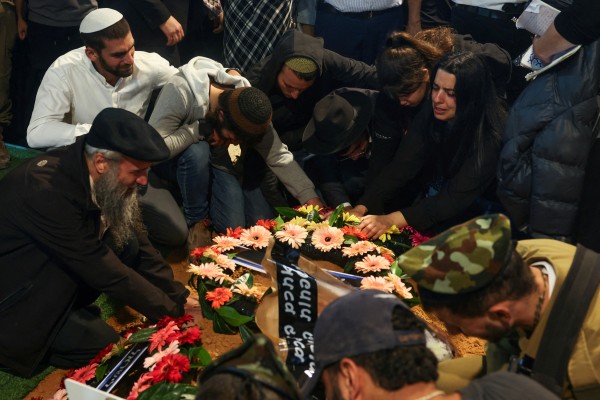The terrorist group Hamas told mediators Thursday it was ready for a “complete agreement” if Israel stopped the war. However, it would no longer negotiate until Israel stopped its offensive in Gaza, it added.
Talks, mediated by Egypt, Qatar, the U.S. and others to arrange a ceasefire between Israel and the Islamist movement in the Gaza war have repeatedly stalled, with both sides blaming the other for the lack of progress.
The latest Hamas statement came as Israel pressed on with an offensive on the southern Gaza city of Rafah, despite an order by the International Court of Justice (ICJ), the top U.N. court, to halt the attacks.
“Hamas and the Palestinian factions will not accept to be part of this policy by continuing (ceasefire) negotiations in light of the aggression, siege, starvation and genocide of our people”, the Hamas statement read.
“Today, we informed the mediators of our clear position that if the occupation stops its war and aggression against our people in Gaza, our readiness (is) to reach a complete agreement that includes a comprehensive exchange deal,” it added.
Israel has rejected past Hamas offers as insufficient and said it is determined to wipe out a group bent on its destruction. It says its Rafah offensive is focused on rescuing hostages and rooting out Hamas fighters.
Nearly 36,000 Palestinians have been killed in Israel’s offensive across all of Gaza, the health ministry there says.
Israel launched the operation after Hamas-led militants attacked southern Israeli communities on October 7 last year, killing around 1,200 people and seizing more than 250 hostages, according to Israeli tallies.
(REUTERS)
In a career spanning three decades and counting, Ramananda (Ram to his friends) has been the foreign editor of The Telegraph, Outlook Magazine and the New Indian Express. He helped set up rediff.com’s editorial operations in San Jose and New York, helmed sify.com, and was the founder editor of India.com.
His work has featured in national and international publications like the Al Jazeera Centre for Studies, Global Times and Ashahi Shimbun. But his one constant over all these years, he says, has been the attempt to understand rising India’s place in the world.
He can rustle up a mean salad, his oil-less pepper chicken is to die for, and all it takes is some beer and rhythm and blues to rock his soul.
Talk to him about foreign and strategic affairs, media, South Asia, China, and of course India.





